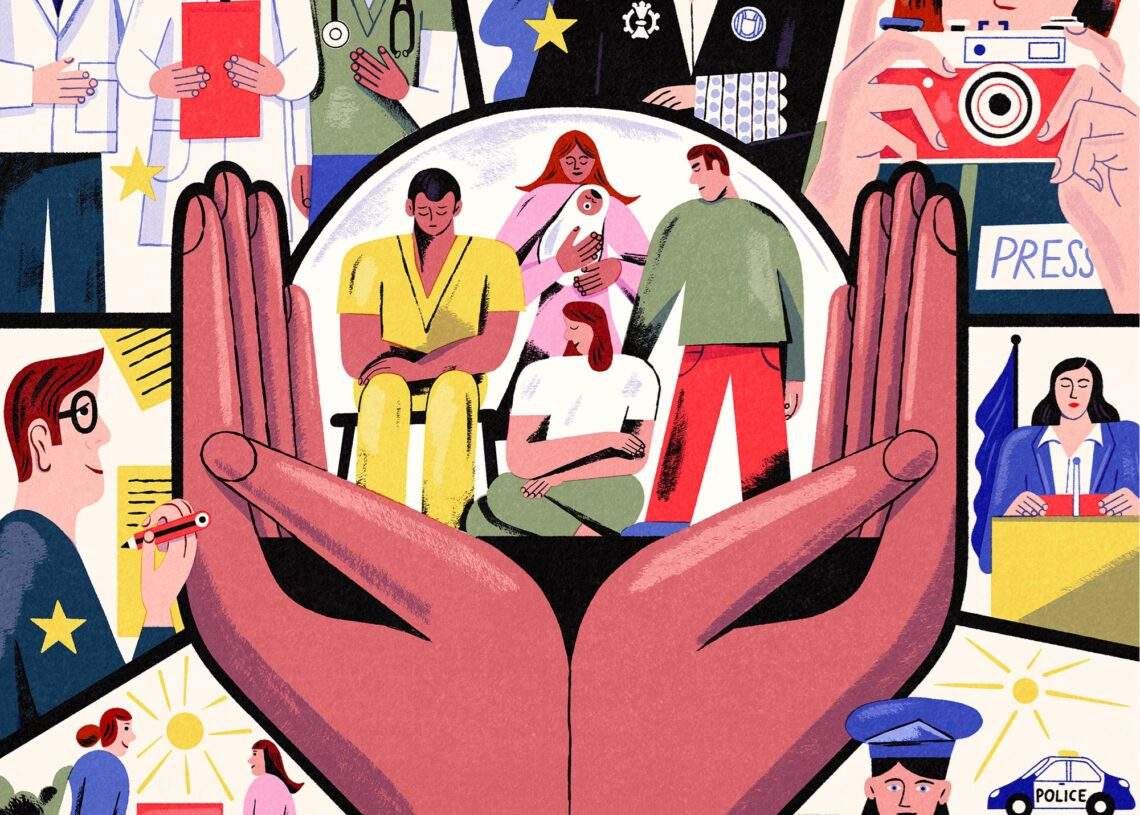In the framework of international cooperation, the COPOLAD III programme seeks to integrate a human rights perspective into drug policies. This effort, aligned with the European Drugs Strategy, contributes to building bridges with Latin America and the Caribbean to develop initiatives that prioritise the well-being, dignity and social inclusion of the people and communities affected on both sides of the Atlantic.
COPOLAD III tackles this task with a cross-cutting approach, working hand in hand with countries to implement innovative and sustainable solutions. Its impact is particularly notable in areas such as harm reduction, the promotion of economic alternatives and local and community empowerment, although it is also included in various areas of work such as economic inclusion or alternative development (DAIS).
Risk and damage reduction
One of the highlights of the programme is its commitment to the right to health. Women and vulnerable groups, often those most affected by barriers to access to treatment, are at the centre of these initiatives. In Mexico, for example, the accompanying harm reduction policies promote improved treatment and care for the LGTBIQ+ population with problematic drug use through guides and toolkits. This rights-based approach is reflected in the guides and training also aimed at improving the quality of care services for people with methamphetamine and fentanyl use. In Colombia, work is being carried out with the government to improve the diagnosis and sustainability of harm reduction within the framework of the new drug strategy. The Programme also accompanies 12 countries in the implementation of community development initiatives, which serve as a support and health network for people who consume or are at risk of falling or relapsing into drug trafficking networks.
Humanization of criminal justice
Together with the Conference of Ibero-American Ministers of Justice (COMJIB) and the Inter-American Association of Public Defenders (AIDEF), COPOLAD III works to improve proportionality and alternatives to sentencing for minor drug traffickers, especially women, as well as for alternatives to imprisonment, which have a considerable impact in the region. In addition, the programme supports legislative and judicial initiatives in Costa Rica, the Dominican Republic, Paraguay and Trinidad and Tobago through the development of technical assistance, guidelines and protocols that improve the quality and effectiveness of laws.
Innovation laboratories
The programme emphasises an innovative approach, embodied in the social innovation laboratories in the field of public drug policy. These are spaces designed to experiment and develop new solutions from a human rights perspective. In Peru, for example, an early warning system is being implemented to prevent environmental crimes and protect human rights defenders in the Amazon. Meanwhile, in Uruguay, initiatives focus on the social and economic inclusion of women who have faced adverse contexts due to their links to drugs. In Chile and Colombia, the prototypes of the labs focus on youth and on approaches that improve prevention, care and economic inclusion.
National Drug Observatories
COPOLAD III has worked closely with the National Drug Observatories of Latin America and the Caribbean to provide analytical tools that include a differential and human rights approach, as well as a gender approach. The guidelines developed by COPOLAD III and the observatories in the region allow countries to design policies that are more inclusive and adapted to the needs of their populations.
Civil society
The link with civil society has also been fundamental in developing the rights approach. COPOLAD III has collaborated by providing training and linking community development projects with public initiatives such as the American Network for Intervention in Situations of Social Suffering (RAISSS) or the Ibero-American Network of NGOs working on Drugs and Addictions (RIOD). Also through the promotion of the social use of seized assets with organisations such as Libera or the Colombian Corporación Viviendo or the Permanent Committee for the Defence of Human Rights (CPDH).
With each step, COPOLAD III reaffirms its mission to improve drug policies, promoting solutions that respect and strengthen human rights. Its work demonstrates that an inclusive and people-centred approach can generate humane and more effective results for public drug policies in Latin America and the Caribbean, as well as in the European Union.






